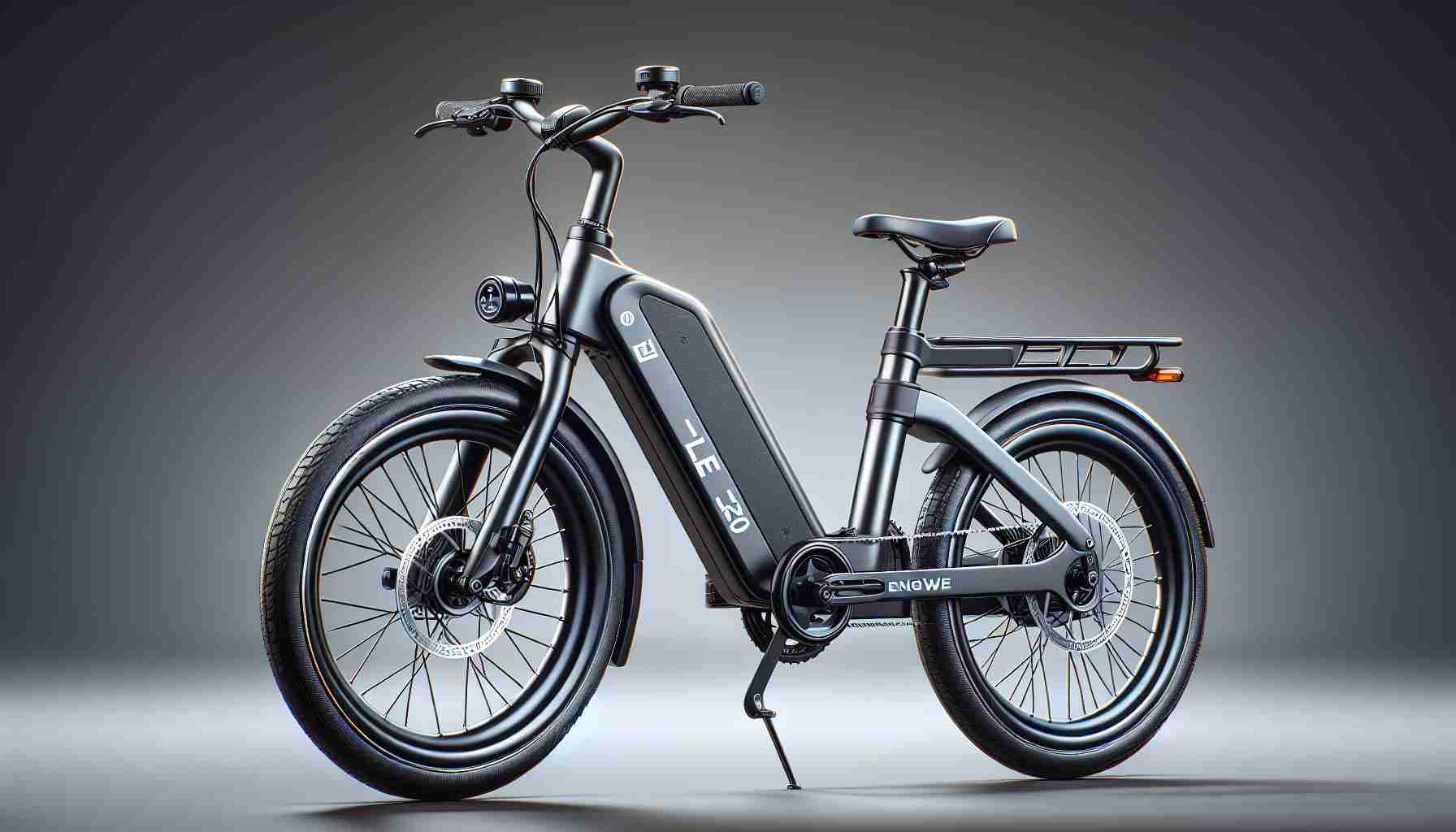In an era where sustainability takes precedence, electric bikes (e-bikes) are emerging as a practical alternative to cars for short-distance travel. Leading the charge in this niche market is Engwe, notable for its cost-effective yet powerful e-bikes. Their latest offering, the LE20, is designed specifically to facilitate the transportation of various cargo, such as groceries, tools, and even young riders.
The LE20 stands out with its impressive load capacity, able to carry 200 kg (441 lbs)—a considerable advantage over typical bicycles. Constructed from durable aluminum, its thoughtfully designed frame features extended rear supports, enabling diverse cargo configurations. Whether ferrying children, securing a waterproof bag for inclement weather, or embarking on outdoor adventures, the LE20 adjusts seamlessly to the task at hand.
What truly enhances the LE20’s appeal is its robust mid-mounted motor, producing a peak power of 1,300 W and 100 Nm of torque. The bike’s range is remarkable, purportedly reaching up to 350 km (217 miles) on a full charge, making it suitable for extensive rides. Although actual mileage may vary in everyday use, the convenience of quick recharging in about three hours makes it practical for busy urban dwellers.
Additionally, features like hydraulic brakes, a folding steering column, and puncture-resistant fat tires create a comprehensive riding experience. Engwe’s LE20 is a testament to efficient urban mobility, redefining convenience for everyday commuting in a cost-effective package.
The Electric Bike Industry: An Overview
The electric bike industry has seen significant growth in recent years, propelled by increasing urbanization, rising fuel prices, and a growing consciousness about environmental issues. As cities become more congested, commuters seek alternative modes of transportation that reduce both travel time and environmental impact. E-bikes, particularly models like Engwe’s LE20, offer practical solutions for short-distance travel while being more sustainable than traditional vehicles.
Market forecasts suggest that the global e-bike market is projected to expand substantially, with estimates indicating a compound annual growth rate (CAGR) of approximately 7-10% through the next several years. According to various industry analysts, this surge is driven by factors such as technological advancements in battery life and motor efficiency, the surge in remote working prompting increased local travel, and government incentives for sustainable mode of transportation. The market’s growth is also being bolstered by increasing demand for last-mile delivery solutions, as urban logistics shift toward more sustainable methods.
Key Issues in the E-Bike Industry
Despite the optimism surrounding the e-bike market, several critical issues must be addressed. One major challenge is ensuring the safety and infrastructure support for e-bikes within urban environments. Many cities struggle to develop adequate bike lanes and safe pathways to accommodate the growing number of cyclists. Additionally, concerns about theft and the durability of e-bike components can deter potential buyers.
Regulatory frameworks also present hurdles. Different countries and regions have varying laws governing e-bike usage, such as speed limits and power restrictions, which can complicate the purchasing process for consumers. Moreover, the sustainability claims of e-bikes can sometimes be overstated. While they are generally more environmentally friendly than cars, the production processes of lithium batteries and their eventual disposal raise significant questions about the environmental impact of e-bike manufacturing.
The Future of Electric Bikes
As companies like Engwe innovate with models that emphasize high load capacity and features catering to family usability—such as the LE20’s capacity to carry children and gear—the demographic of e-bike users is rapidly broadening. Manufacturers need to focus not just on performance but also on accessibility and affordability to reach a wider audience. Hence, collaborations between e-bike manufacturers and city planners may become increasingly vital in promoting e-biking as a mainstream commuting option.
To stay updated with the trends and developments in the electric bike industry, interested readers can explore more at eBicycles and Bike Industry News. These platforms provide comprehensive insights into market dynamics, industry challenges, and innovations shaping the future of electric mobility.







